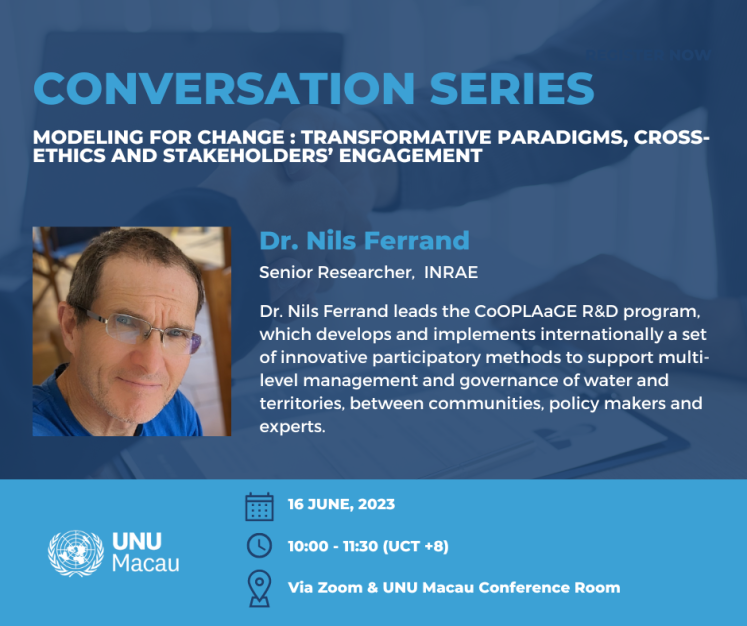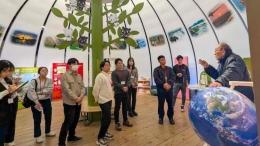Abstract
Models and modeling have been crucial in the scientific contribution for global warning toward adaptation policies. However the repeated efforts of the IPCC to trigger large scale transformative movements have not been fruitful. At various scales, scientists realise they may have to change their intervention paradigms and partly their ethics to increase the impact of knowledge. In marginal sectors, post-normal scientists, specialists in participatory modelling, holders of intervention-and embarked research, operational groups of multi-disciplinary field action, have developed new practices and ethics reinforcing interactions with all stakeholders. Participatory modeling becomes a transformative process by itself, a reconstruction of common imaginaries which can turn into new social norms, fostering autonomy in front of a rapidly changing environment. We’ll show some instances of such processes in international contexts and propose a discussion of the new emerging ethics.
About the speaker
Dr. Nils Ferrand leads the CoOPLAaGE R&D program, which develops and implements internationally a set of innovative participatory methods to support multi-level management and governance of water and territories, between communities, policy makers and experts. Since 1993, in 40+ countries, he has steered action-research projects supporting governments, institutions and NGOs in adapting their decision processes and organizations. He has designed, validated and transferred new participatory tools for co-designing governance procedures (PrePAR), integrative planning (COOPLAN), participatory modeling kits to customize games for co- management & policy (Wat-A-Game), policy framing and multi-impact monitoring and evaluation (ENCORE). Tools are physical (on-board) but computer versions are also made available online.
He has also a background in water (IWRM, scarcity, irrigation, reuse, WASH, floods, hydromorpho., ecos. services) & environmental sciences, complex systems modelling, artificial intelligence (decision support), socio-environmental engineering, social impact assessment and social simulation, policy integration and international project development.
He has worked for UN-DESA, World Bank CMI, OECD, IWMI, ILRI, IFAD, AFD, GIZ, CGIAR, Eur. Comm, EuropAid, ABN, AERMC, EPAMA, CIRAD, FR Ministries of Agriculture and Environment, Govt of Tunisia, Sénégal, Kiribatis, Costa-Rica, Mozambique, New-Caledonia, Regions of Occitanie, Rhône-Alpes, Britanny and many other Water organizations and management authorities. He is currently senior researcher (CR-HC) at INRAE, the FR. Nat. Res. Inst. for Agricultural and Environmental Research, in the Water Management, Actors & Uses (G-EAU) joint laboratory in Montpellier, France. He coordinates or works in 6 funded projects, supervises the CoOPLAaGE group and teaches up to 220h/year in international MSc & executive courses, after developing the “Terr’Eau &co” 50h online course on water & land participatory management. He has supervised more than 90 engineers, post-docs, PhDs and MSc.
You can watch the full talk here:




